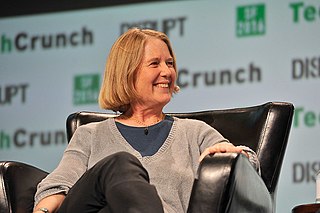A Quote by Jeff Dean
Definitely there's growing use of machine learning across Google products, both data-center-based services, but also much more of our stuff is running on device on the phone.
Related Quotes
I'd love if Google ran my cable or phone company. Instead of making their businesses out of telling us what we can't do, GT&T would recognize the benefit of helping us do what we want to do: use the internet more and create more of our own stuff. Google might even figure out how to make connectivity ad-supported and free. Sadly, though, I think Google knows what it is and won't expand into other industries, even if it would be good at running a cable or energy or phone company.
Google Now is one of those products that to many users doesn't seem like a product at all. It is instead the experience one has when you use the Google Search application on your Android or iPhone device (it's consistently a top free app on the iTunes charts). You probably know it as Google search, but it's far, far more than that.
We use similar products. Our focus industry is healthcare and hospitality. But we haven?t done anything interactive. The first day full of seminars is full of things I thought would be useful: quick service restaurant and mobile phone applications. Businesses are providing more services and products by self-service means.
The growing complexity of science, technology, and organization does not imply either a growing knowledge or a growing need for knowledge in the general population. On the contrary, the increasingly complex processes tend to lead to increasingly simple and easily understood products. The genius of mass production is precisely in its making more products more accessible, both economically and intellectually to more people.


































